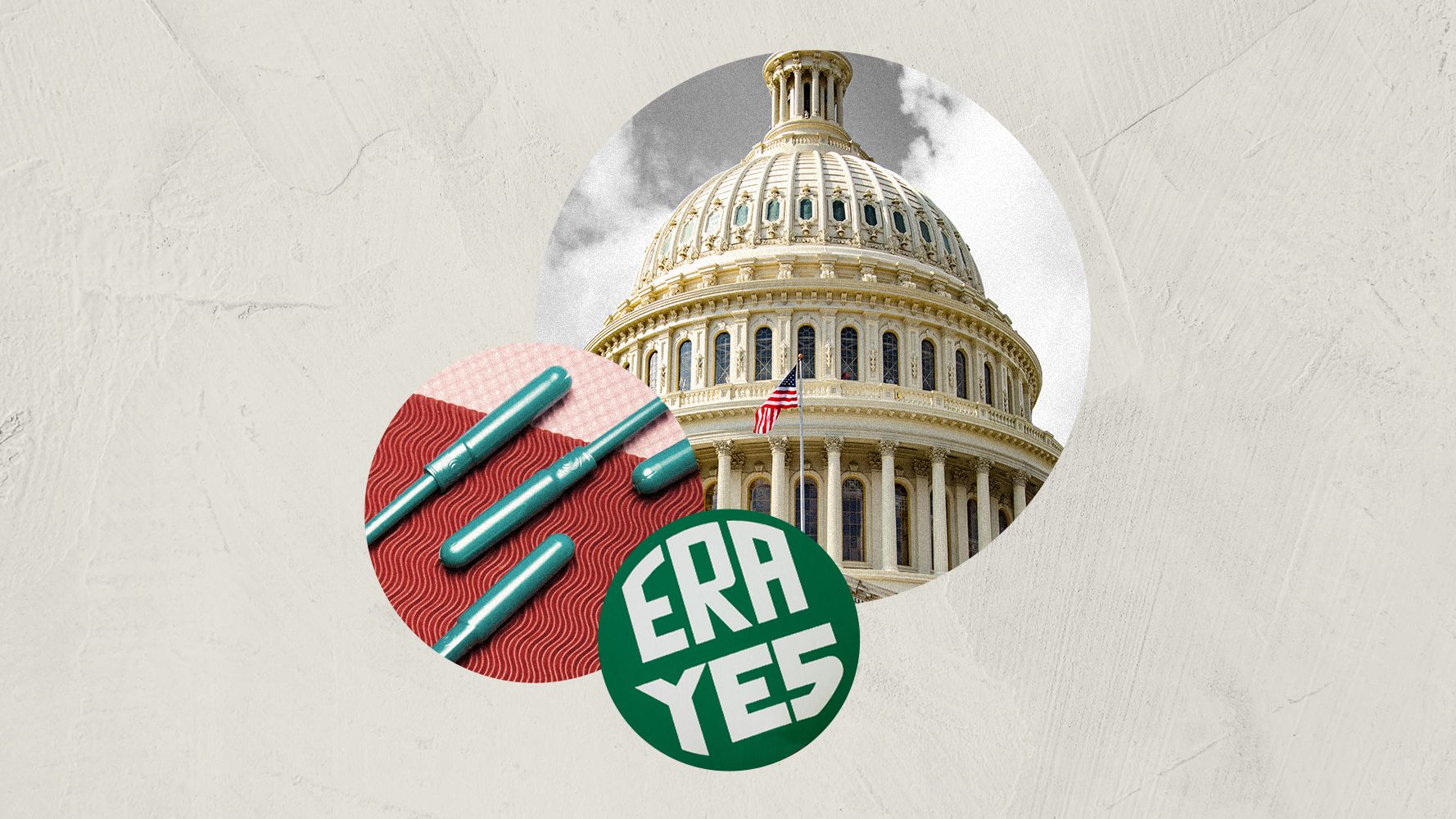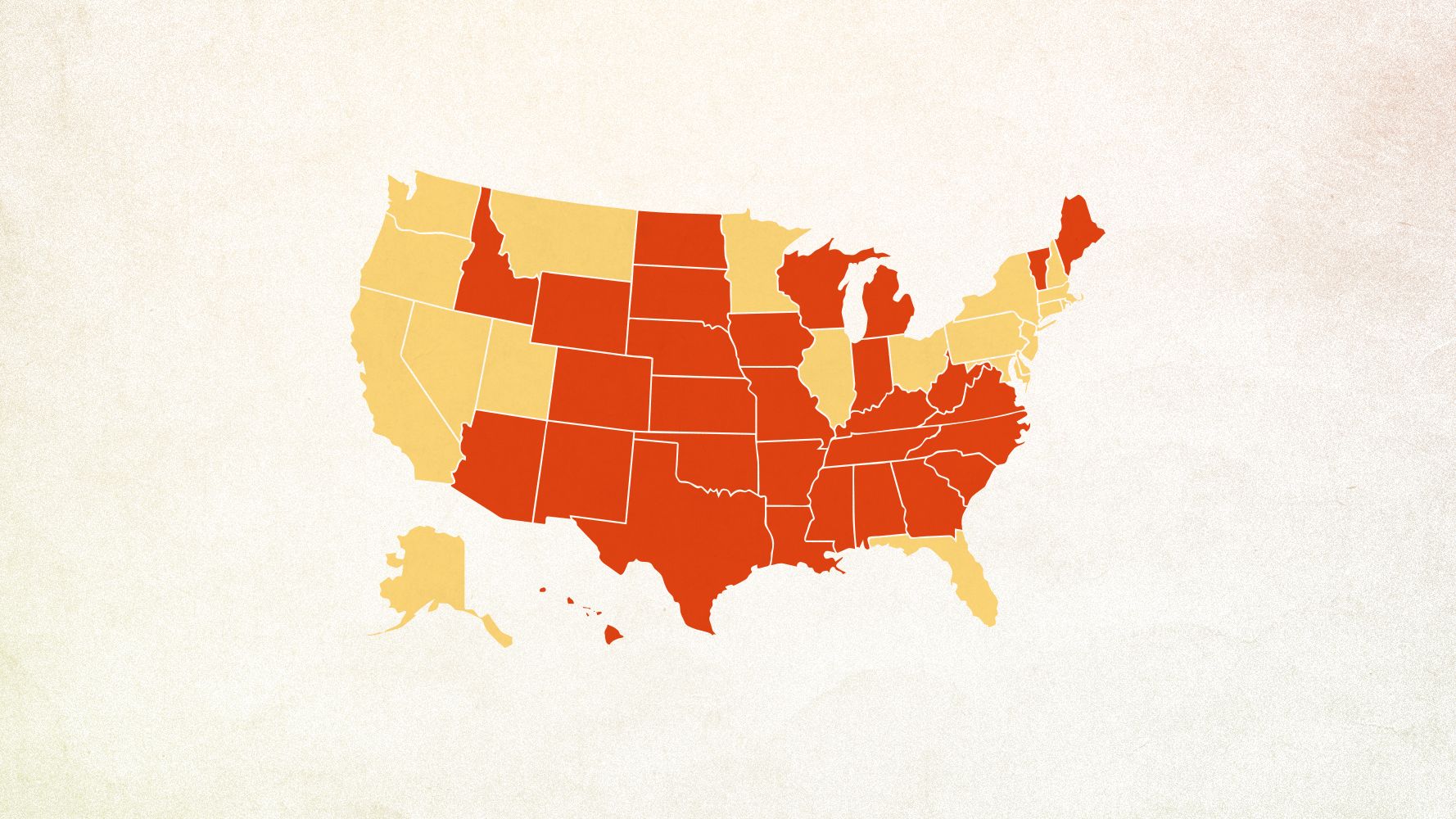The Fight for Menstrual Equity Continues in 2021
Eliminating the tampon tax is just one of many goals we should be focusing on.


Amid a year of crises and uncertainty, one thing has remained constant for many of us: our periods. Throughout the pandemic, women in particular have borne disproportionate economic and social harm—not only facing the most job losses, but also crushing caregiving responsibilities and mental health challenges. As for the costs of menstruation? Yet another burden to add to the list.
The good news is that 2021 ushered in major policy reforms for menstrual equity across the world. New Year’s Day marked the end of the tampon tax in England—the culmination of a seven-year organizing campaign. And Scotland made history as the first nation to mandate free period products to anyone in need—a bill that was signed into law just a couple weeks ago.
Here in the United States, there have been notable advances too. Back in March, when Congress passed the Coronavirus Aid, Relief, and Economic Security (CARES) Act, it included a long-sought provision: reclassification of menstrual products as qualified medical expenses, meaning they now can be purchased with pre-tax dollars via employee health savings and flexible spending accounts. Prior to this new designation, items like contact lens solution and sunscreen were included, whereas tampons, pads, cups, and period underwear were not.
In April, Washington eliminated its tampon tax, joining the 19 other states that already do so. And when schools shuttered last spring, New York City lawmakers were persuaded by two teens to provide menstrual products at emergency meal hubs serving low-income students and their families.
These may sound like baby steps compared to the news of sweeping nationwide change across the pond, but a winning domestic agenda entails a mix of federal, state, and local interventions that intertwine and unfold just like this. I’m more optimistic than ever that the stage is now set for transformation this year.
Below, the five menstrual equity policies we should commit to fighting for in 2021.
End the Tampon Tax Across the U.S.
There are 30 states that still do not exempt menstrual products from sales tax. Collectively, these states rake in over $125 million annually from our period purchases.
Get exclusive access to fashion and beauty trends, hot-off-the-press celebrity news, and more.
Since 2016, 10 states, along with Chicago, Denver, and Washington, D.C., have eliminated the tax by passing laws, reconciling budgets, and even launching a citizen-led ballot measure. This is one of the battles that must be waged on the ground; there is no direct order that Congress or the White House can make given that sales tax is levied state by state (and sometimes by municipalities and counties). That said, passage of the federal CARES Act sends a compelling message: First, that menstrual products should be treated as medical necessities. Second, that tax exemptions are a critical and appropriate lever for providing meaningful economic relief and addressing inequities.
The tampon tax stands as an issue that has garnered rare bipartisan support. Back in 2018, I teamed up with a Republican lawmaker to shed light on this phenomenon. In these rancorous political times, the opportunity for both parties to deliver a shared win is something we should all get behind.
A cutting-edge movement is underway to take down the tax in court, too. My organization, Period Equity, brought together a coalition of leading constitutional scholars, private attorneys, and law students to make the case that the tampon tax is sex-based discrimination. Last summer, we filed a class action lawsuit on behalf of three women against the state of Michigan. (When we did the same in New York in 2016, it successfully pressured the legislature and governor to take action.) Our complaint opens: “The devastation wrought by the coronavirus pandemic has only amplified the impact of this unfair and regressive tax.”
Reintroduce and Pass the Menstrual Equity For All Act (ME4ALL) in Congress
This federal omnibus bill championed by Rep. Grace Meng (D-NY) deftly leverages federal spending and oversight to spur broad menstrual access. Among its provisions: requiring Medicaid to include menstrual product purchases; directing emergency shelter funding to cover menstrual products for people who are displaced or homeless, as well as homeland security to do the same for detainees; tapping federal education law to include pad and tampon availability in school budgets; and drawing on labor regulations to mandate free menstrual products in workplace restrooms.
ME4ALL’s criminal justice clause is worth spotlighting as well. It builds on prior U.S. Department of Justice recommendations and a 2018 law called the First Step Act, both of which require federal prisons to provide free menstrual products. Given that the vast majority of female inmates are not locked in federal facilities, but rather in state prisons and local jails, the bill would tie a state’s federal justice funding to a requirement that it provide menstrual products in all correction units. Behold a brilliant demonstration of the power of purse strings—as well as a stark reminder that not all nationwide interventions necessarily impact the greatest swath of people.
Ensure Accessibility for At-Risk Populations
In recent years, six states have mandated that pads and tampons be provided in schools, and 13 states passed laws to require them in prisons, jails, and shelters. Many cities and communities have done the same, even extending to places like public benefits offices, libraries, and parks. The entire country should follow this lead.
At the same time, we owe deeper consideration to those for whom the costs of menstruation go beyond dollars and cents, but also extend to their safety—such as transgender people, those in police custody, and domestic violence survivors. Many people who need support exist outside the societal safety nets where menstrual products are currently made available. While doing so, activists and lawmakers alike should use gender-neutral language as the default in order to be inclusive of trans and nonbinary individuals when advocating for and advancing menstrual policies.
Scotland’s new law sets a stellar example in expanding the public places paradigm. It allows individuals to make confidential requests for assistance and then receive a disbursement, in the form of a special card or voucher, to obtain menstrual products however is easiest for them.
Join the Fight for Equal Rights
After a century of activism, America is on the precipice of achieving full passage of the Equal Rights Amendment. Well beyond the symbolic significance of enshrining equality in the U.S. Constitution, there are a myriad of legal and policy inequities the ERA would help rectify. Menstruation must be among them. Rep. Carolyn Maloney (D-NY) stepped up as the first lawmaker to propose menstrual equity as part of the platform: “The ERA would mean that [we] would no longer have to fight the pink tax product by product, or fight the gender pay gap job by job or employer by employer, and it would solve intractable problems that a piecemeal approach cannot.”
Acknowledge the Other M-Word: Menopause
An estimated 6,000 GenX-ers like me are entering menopause every day. We are welcomed to this phase of our life by legions of powerhouse baby boomers. And millennials, now the largest cohort in the U.S., are or will soon be in the throes of perimenopause, known as the period that precedes menopause, which can last for as long as a decade. That is three generations impacted in real time.
Much like we’ve shown with the movement for menstrual equity, menopause can also be a compelling catalyst for better, more representative lawmaking—from how we consider the equitable provision of heath care to protections from workplace discrimination.
Yet there is a vast information vacuum when it comes to this chapter of our lives. And roughly zero public focus on menopause-centered policy. Think: workplace accommodations and protections for employees experiencing menopause, educational curriculum development—from secondary sex ed all the way to medical personnel training—on the mechanics of menopause, more transparency around drug treatments to relieve its most debilitating symptoms, and urgent research on the link between plummeting hormonal levels and certain health risks, including recently-raised concerns about severe COVID-19 symptoms and outcomes.
It is due time for change. Menstrual equity is essential to creating a fair and just society for all. Join the fight here.
RELATED STORIES


Jennifer Weiss-Wolf is the cofounder of Period Equity and a fellow at the Brennan Center for Justice at NYU School of Law. She is the author of Periods Gone Public: Taking a Stand for Menstrual Equity.
